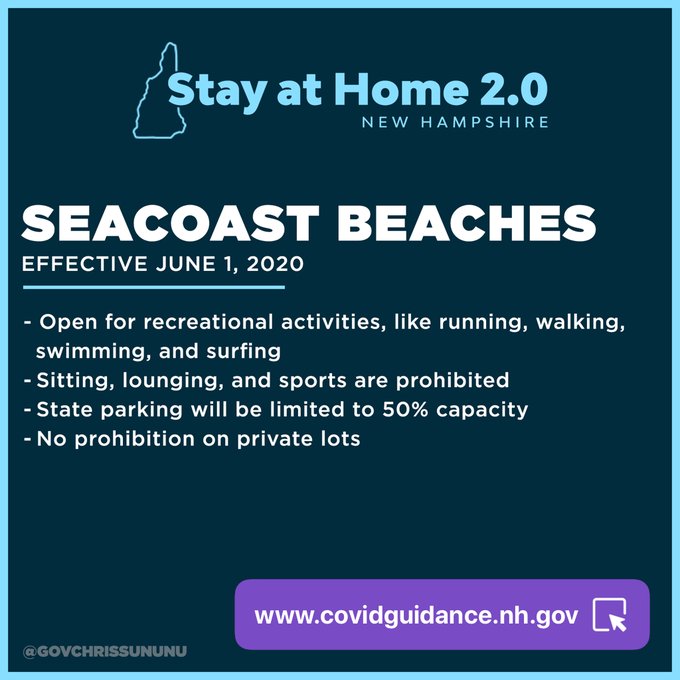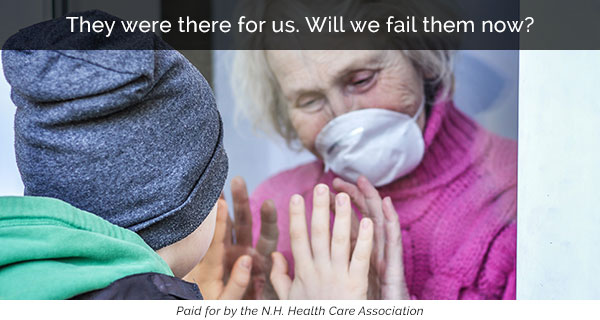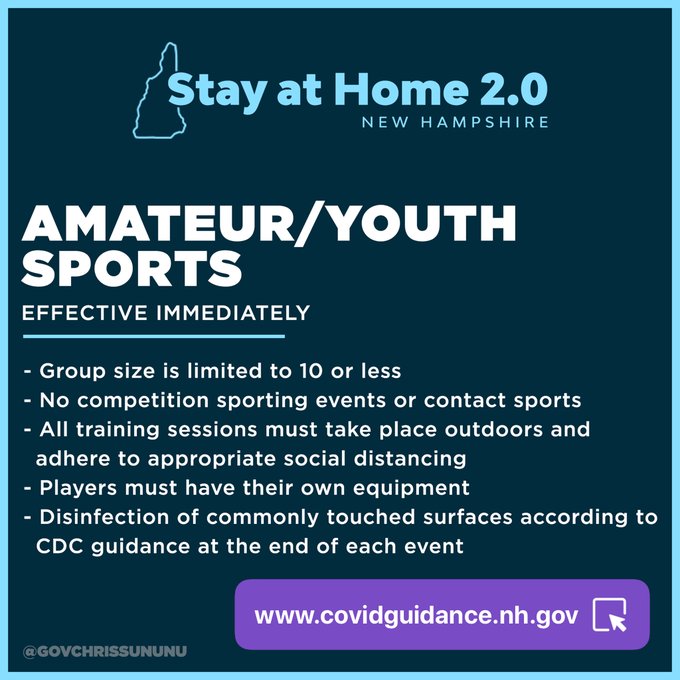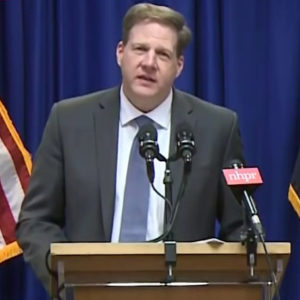At the COVID-19 presser on Friday, Gov. Chris Sununu released a long list of new guidance for Granite Staters on activities that will be allowed, both as of this weekend and beginning Monday, June 1, as part of his “flex” approach to reopening the state as summer approaches.
According to the new guidance, beginning June 1 — a week after Memorial Day:
All seacoast beaches will be open for only transitory physical activity, including but not limited to walking, running, swimming, surfing, kayaking and paddle boarding. Sand sports, sun-bathing, picnicking, or other stationary activities on the beach are not permitted. Group size limited to 10 individuals or less. All individuals must maintain a minimum six-foot distance between other people at all times.

Also starting June 1, gyms will be closed for traditional workouts (no individuals hopping on treadmills or ellipticals, for example) but “fitness centers may open to small-group fitness classes – but only where social distancing can be allowed, with 8-10 feet between individuals.”
And while many traditional businesses remain closed, “yard sales are open for business as of this weekend,” Sununu announced.
The news came as the number of new positive cases dropped to 81, a minuscule number in a state of 1.3 million people, as well as yet another report that 75 percent of the newly-announced fatalities are at longterm care facilities. This brings the state’s overall death total at LTCFs to 80 percent of all Granite State COVID-19 fatalities.
Sununu insisted sunbathing crowds still pose too high a risk to the state’s overall health security.
“What’s the line in the sand, is that what you’re saying? This is not a time to just drop your blanket and sit around,” Sununu said. New Hampshire will be the only East Coast state without any beach openings on Memorial Day weekend, despite data indicating being outdoors is a low-risk activity.

“I think going outside is important for health,” Julia L. Marcus, an epidemiologist and assistant professor at Harvard Medical School told the NYTimes. “We know that being outdoors is lower risk for coronavirus transmission than being indoors. On a sunny, beautiful weekend, I think going outside is indicated, but I also think there are things to do to reduce our risk.”
“The virus load is important,” added Eugene Chudnovsky, a physicist at Lehman College. “A single virus will not make anyone sick; it will be immediately destroyed by the immune system. The belief is that one needs a few hundred to a few thousand of SARS-CoV-2 viruses to overwhelm the immune response.”
As for other Memorial Day traditions like backyard cookouts, Sununu urged common sense.
“The stay at home order is in place, gatherings of greater than 10 people are not encouraged. But the cookout police are not going to come to your house if you have family over for the weekend. We just want people to be smart,” Sununu said.
Sununu also had some (very limited) good news for sports fans:

But to some Granite Staters, the rules continue to appear more and more arbitrary as Walmarts sell out of bicycles while local bike shops are closed. There is little data showing that sunny, windswept beaches pose a threat of spreading the virus, while handling strangers’ personal property at a yard sale could be viewed as a risk.
With 175,000 people unemployed and thousands more filing for new jobless benefits every week, business owners and working families wonder how much longer they must pay such a high price to prevent activities that create such low risks.
Three months after the arrival of the COVID-19 virus in New Hampshire, the death rate among Granite Staters under of the age of 60 without any comorbidities remains zero.

